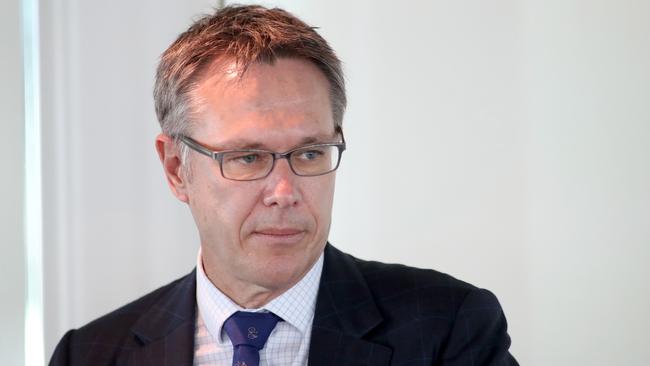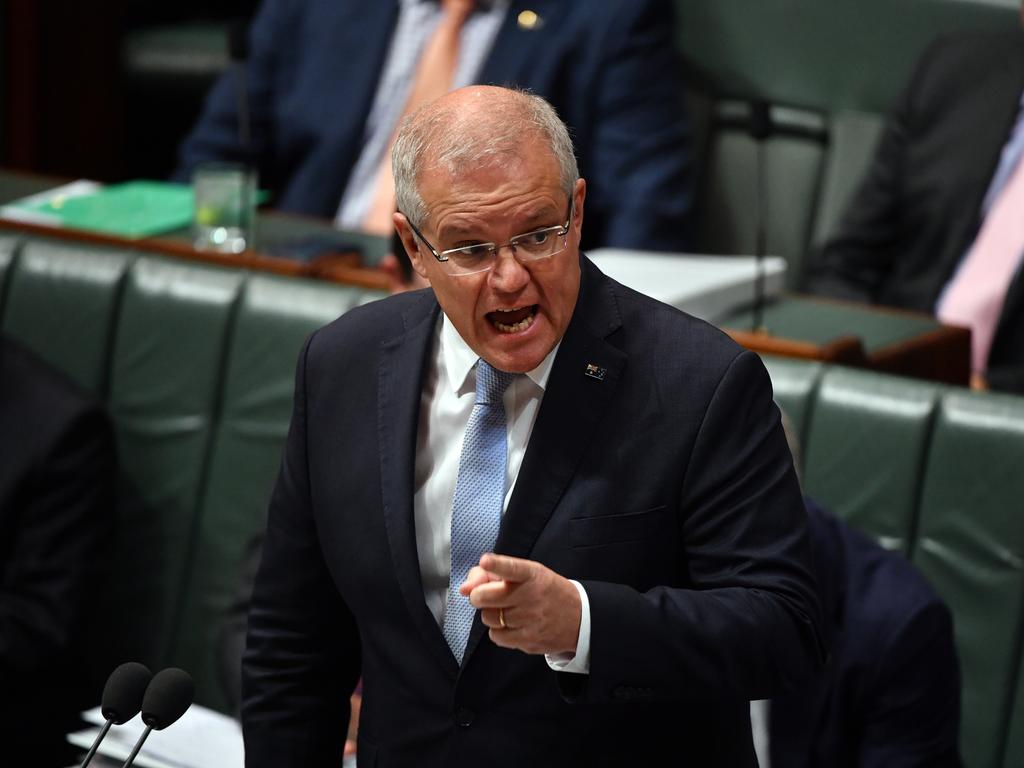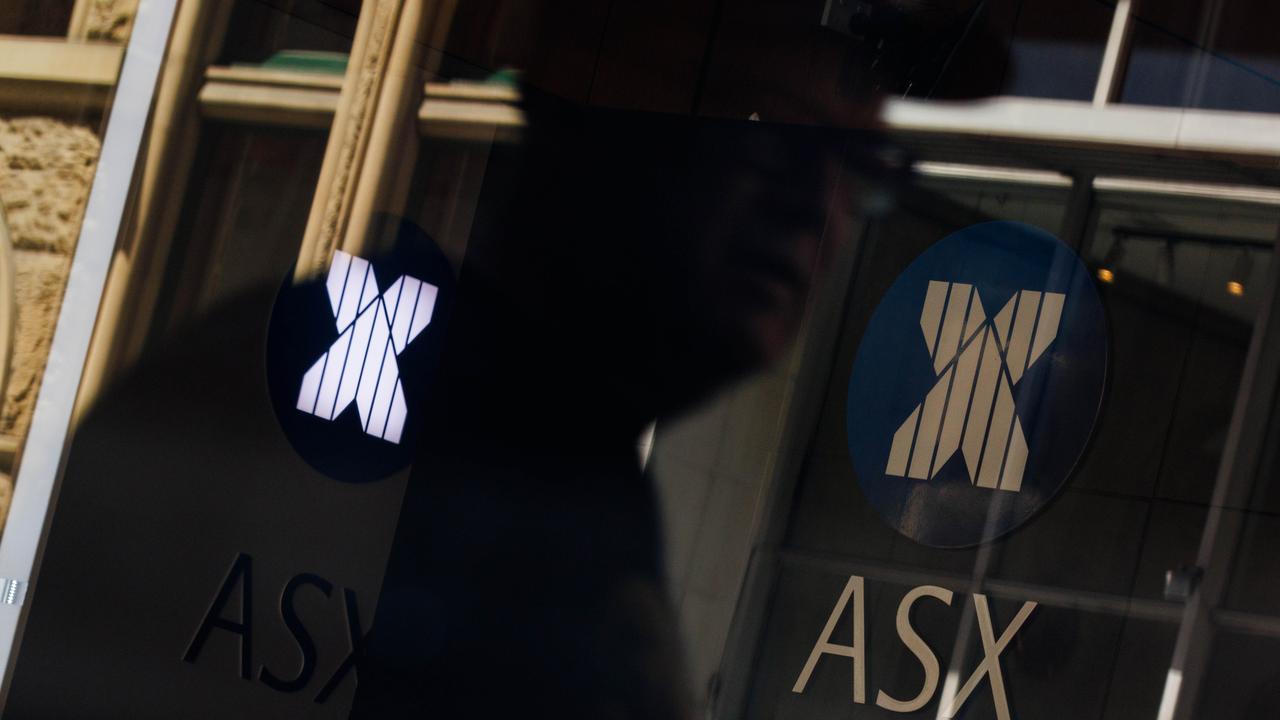RBA ready to move on unconventional policy, says Guy Debelle
The RBA is poised to launch a program of unconventional monetary policy if needed, deputy governor Guy Debelle says.

The Reserve Bank is poised to launch a program of unconventional monetary policy, with deputy governor Guy Debelle pledging to “act in the government bond market as necessary” to keep yields on government bonds low.
Dr Debelle also said Australia’s banks were “well capitalised”, in a “strong liquidity position” and will be “resilient to a period of market disruption”.
Appearing at a business forum on Wednesday, Dr Debelle said ther were “scenarios where we are certainly going to have to consider” a quantitative easing-style program of government bond buying as the RBA’s official interest rate careened towards zero.
“We need interest rates to be low for a sufficiently long period of time,” Dr Debelle said.
“We would talk about the likely future path of interest rates ...to validate that, we’d be operating in the government bond market as necessary,” he said.
The RBA, which recently cut the official cash rate to 0.5 per cent, has flagged that it could launch unconventional monetary policy if it cuts rates one more time to 0.25 per cent and the economy is still in need of stimulus.
It is likely the RBA would adopt a “yield-curve control” program where it would buy enough government bonds to maintain yields at a desired level, which would encourage investors to pour money into more productive assets.
Dr Debelle said adopting a target to keep government bond yields low would affect the yield structure of the rest of the local financial markets.
“That would be the sort of option we would be considering,” he said.
Dr Debelle also said the RBA wasn’t yet on the verge of adding significant amounts of liquidity to financial markets amid the global plunge in equities prices and as corporate debt markets fluctuated.
“At the moment, we don’t see material disruptions in financial markets. If that was to change, obviously we have the capacity to change,” he said.
“We don’t see the need for that now.”
Robust banks
Speaking after a turbulent week on Australian financial markets where the local share market dipped into bear territory — down 20 per cent from its February peak — Dr Debelle said Australian banks had raised a significant amount of wholesale funding before the disruption to financial markets and deposits flowing into bank accounts were “robust”.
“Spreads on Australian bank bonds have widened, although yields remain at levels that are still very low historically. We have not seen any particular sign of pressure in our daily market operations to date,” Dr Debelle said.
“The spread between the bank bill swap rate and the expected policy rate (OIS) has risen in recent days but remains low, nothing at all like what occurred in GFC,” he said in reference to the global financial crisis of 2008.
Analysts have raised concerns of an impending wave of corporate defaults in the energy sector following a 30 per cent crash in the oil price over the weekend, which has triggered a blow out in investors willing to hold onto high-yield corporate bonds.
At the same time, financial markets are gyrating wildly as investors reprice equities and other securities as the impact from the coronavirus more deeply affects economies.
Dr Debelle said liquidity in fixed income markets had been “poor” at times, including even in US government treasuries.
“Corporate bond spreads have widened,” Dr Debelle said. “The high yield sector has seen a marked rise in yields and spreads, particularly in the US reflecting the prevalence of energy companies in that market,” he said.
“Bond issuance has been extremely low, in part because issuers do not want to appear to be in desperate need of funds in a dislocated market. It is also worth noting that just as equities prices have fallen from historic highs, so too have corporate bond prices fallen from historic highs.”
“The liquidity environment has changed considerably in the past decade in response to changed regulations. The banking sector is much less willing and able to warehouse risk and provide liquidity than in the past.”
Dr Debelle said the 1 per cent decline in the RBA cash rate since June would “put pressure on bank margins” but that the reduction in official interest rates would support the Australian economy “which in turn supports the credit quality of the banks’ portfolios of loans”.
“The virus is a shock to both demand and supply. Monetary policy does not have an effect on the supply side, but can work to ensure demand is stronger than it otherwise would be,” Dr Debelle said. But, he said, lower interest rates will provide more disposable income to the household sector and those businesses with debt
“Monetary policy also works through the exchange rate which will help mitigate the effect of the virus’ impact on external demand,” he said.




